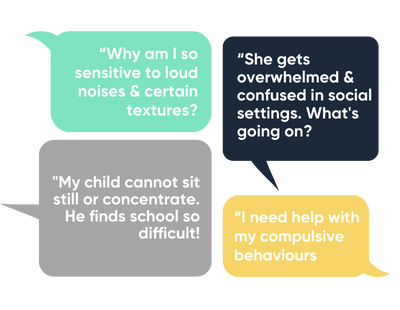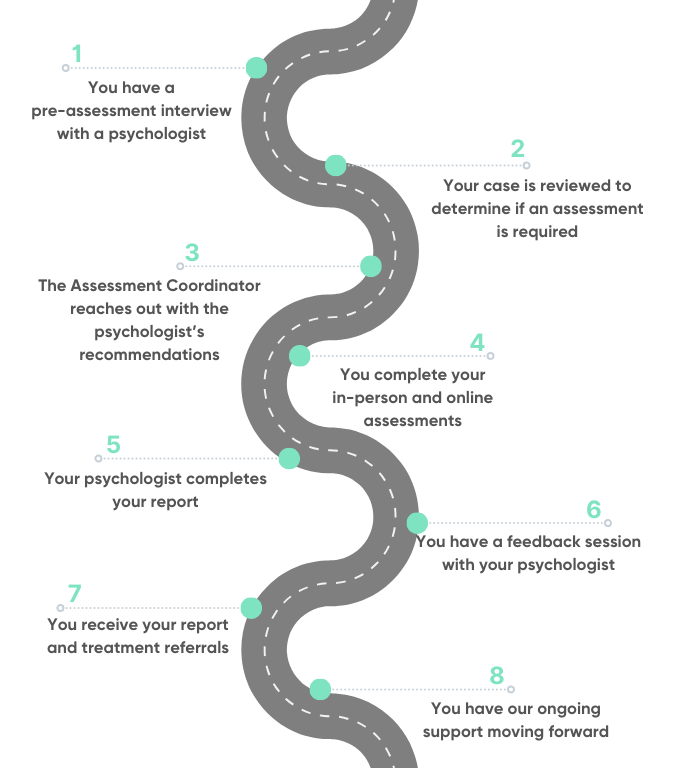we can help you explore what’s going on
What is an assessment?
As psychologists, we meet lots of people who come to us looking for answers;
“My kid’s behaviour is out of control”… “My teenager is withdrawn”… “I’m not sure why I find things so difficult”…
Our Assessments provide answers, solutions and help take away the stress you may be feeling. They help to identify key mental health problem areas, gain information about the underlying needs, plan further treatment options and help you find that ‘ah-ha!’ moment.
You can enquire below or call us on (02) 4965 3530.
What common problems are assessed?:

The assessment process

Browse Assessments





